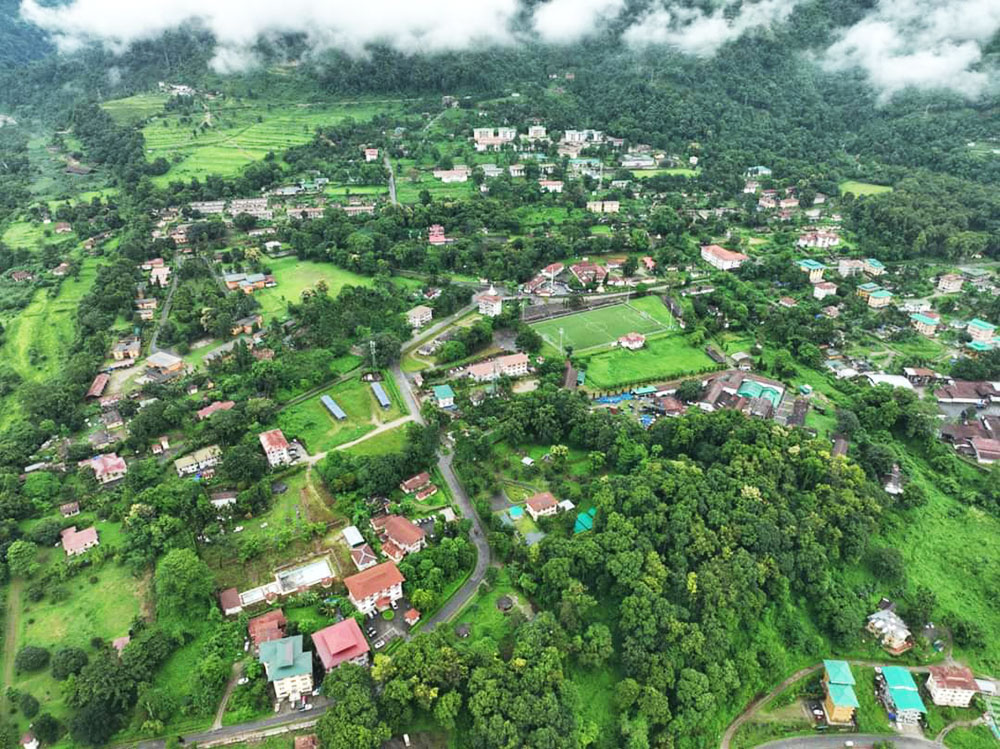YK Poudel
Jarithang village in Samtse recorded the first case of rabies in a dead Jersey cow on August 24.
The cow reportedly showed suspicious symptoms on August 22, after which it succumbed to the virus two days later. The rapid field test resulted positive for rabies—a brain sample was sent for further confirmation to the animal health centre in Thimphu.
The dzongkhag administration, in its public notification yesterday, advised the residents to remain cautious until the case is under control.
Jarithang village is located near the border.
Ugyentse Gup, Karna Bdr Thakuri said that the carcass has been well disposed and immediate precautionary measures have been put in place. “The calf of the Jersey and four other cattle are under observation.”
He said: “The source of the virus is unknown, but it is expected that rabid dogs from across the border could have affected the cow. The affected area has been fenced off as a precautionary measure.”
Livestock sector and health officials in the dzongkhag along with gewog officials are working on the process of implementing disease containment measures such as post-exposure Anti-Rabies Vaccination (ARV) for affected households and family members, public awareness and sensitisation, and mass ARV for dogs and cats in the gewog.
Samtse Dzongdag, Minjur Dorji, in the public notice said that rabies is endemic to Samtse, especially along the border with a high risk of outbreak to all residents, communities, school-going children, and domestic animals.
The general public is notified to be on high alert with approaching dogs.
Moreover, pet dog owners are advised to keep their animals vaccinated and confined in chains, “and any abnormal behaviour of animals should be reported to the nearest veterinary hospital or renewable natural resource centers.”
The National Centre for Animal Health (NCAH) aims to eliminate human deaths due to rabies by 2030 with mass vaccination programmes.
The statistics with NCAH show 40 rabies in the past two years. This year, nine outbreaks in Samtse, Pemagatshel, Samdrupjongkhar, Sarpang, and Chhukha.
With the initiation of the Nationwide Accelerated Dog Population Management and Rabies Control Programme, over 61,000 dogs have been sterilised, with over 58,000 vaccinated against rabies.


